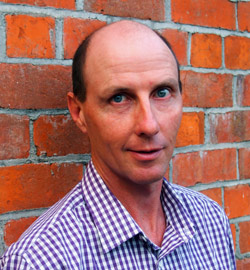$60b KiwiSaver market: who speaks for what
The KiwiSaver market is getting more and more interesting for Australian fund managers, especially those with a wholesale and/or retail distribution capability. It has passed NZ$60 billion after 9 per cent growth in assets in the past year, according to the latest study.
The growth – to NZ$62 billion (A$57.4 billion) – was more modest than in recent years but still way ahead of most other investment vehicles outside of Australia’s super system, given the volatility of markets this year. Two more offerings have been added, taking the total to 33, and at least two more are in the pipeline, according to the annual study published by Investment News NZ. The growth in members also eased, up 3.2 per cent to just over three million (about 60 per cent of the population).
Also of interest to Australian fund managers, the details of the report show a significant move to withdraw funds from the largest bank-owned players, such as Australia’s AMP, BNZ (owned by NAB), ANZ and Westpac, which are losing ground as a group – with the exception of BNZ in the most recent period. On the other hand, smaller specialist fund managers are on the rise.
The winners in inflows tended to be locals over the last year, with the exception of BNZ, which had a 5.9 per cent increase in FUM. Nevertheless, Australian institutions ANZ, Westpac and AMP retained spots in the top five for total FUM.
David Chaplin, the author of the study, said: “Continuing an unbroken series dating back for more than half a decade, AMP lost a net NZ$333 million in scheme transfers in the latest period, adding to the collective NZ$1 billion-plus it bled to competitors during the previous five years.”
The default funds, which have to follow government guidelines in asset allocation and portfolio construction, total only about NZ$4 billion in assets, and actually shrank slightly last year. They are used primarily for new workforce entrants and people changing jobs. There are nine default providers. Both the main body of managers, which grew by NZ$6 billion to NZ57 billion, and the default managers are able to have sub-advisors, and most do. Chaplin says. Two of the new requirements will be fossil fuel exclusions and minimum and maximum asset allocations to growth assets (45 per cent minimum and 63 per cent maximum) for the default funds.
– G.B.
The detailed KiwiSaver study, the 13th annually published, is available in Exel spreadsheet form, covering member and funds under management trends; fees and expenses; investment returns; scheme transfers and other metrics. For non-NZ residents and companies, the price is A$390 (no GST).
Contact the author: david@investmentnews.co.nz or ph: +64 21 022 575 03 for further details.











